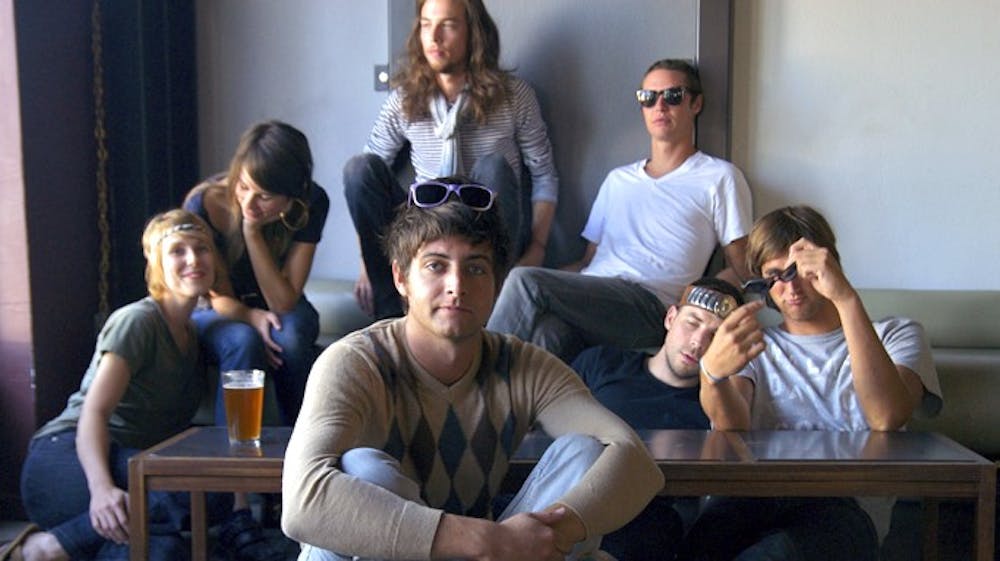The Love Language frontman Stuart McLamb is a funny guy. A day after signing to Durham-based Merge Records Oct. 1, he said in a press release, “As of yesterday, I’ve overdrawn my bank account by $200, my girlfriend dumped me, and my car won’t start. I think this Merge deal could be a real turning point.”
A month later, he told me, “I’m still thinking about lunch and a pack of cigarettes right now.” And the bank account? “I think I’m only around $40 in debt.” Pretty modest expectations for a guy who wrote and recorded one of the best-received debut albums of the year, but things have certainly been worse for McLamb.
In 2007, after a pair of messy breakups—one with his girlfriend, the other with former band the Capulets—McLamb moved back in with his parents and began recording the songs that eventually became the Love Language’s eponymous first album. He described the process as “very redemptive.”
“At the point I was at in my life, I didn’t have a whole lot going for me,” McLamb said. “I sort of poured everything I had into these songs.”
The result was an energetic batch of nine alternately tender and rollicking lo-fi pop songs. Deeply emotional and evocative, The Love Language is in many ways reminiscent of Arcade Fire’s debut LP Funeral, though it’s hardly derivative. When Raleigh-based the Rosebuds invited McLamb to open for them, he assembled a seven-piece band, including two former Capulets, for a live show. The album was later picked up by Portland-based label Bladen County Records and released in March of this year. It garnered positive reviews from national media sources like Pitchfork and National Public Radio and received a boost from the Love Language’s performance at the South by Southwest Festival in Austin, Texas. Fast forward to Merge.
The reaction, McLamb said, has been slightly surreal, if not exactly surprising. “I felt very proud of what I’d made, and I remember having high expectations for it even before we had a label,” he said. “But it’s still crazy to think that I recorded these songs on a four-track in my parents’ dining room.”
The next step is a sophomore album, for which McLamb and the rest of the Love Language have already started making demos.
“I’m gonna get a lot closer to the sound I wanted [on the second album],” he said. “It’s sort of a vintage sound, but futuristic, too. Like Star Wars, I guess.”
From his vantage point, McLamb sees the rapid ascent of the Love Language as coinciding with a renaissance in the Triangle music scene at large. “Years from now, I think this will be looked back on as a golden age,” he said. “There’s so much good stuff going on right now.”
Get The Chronicle straight to your inbox
Signup for our weekly newsletter. Cancel at any time.

